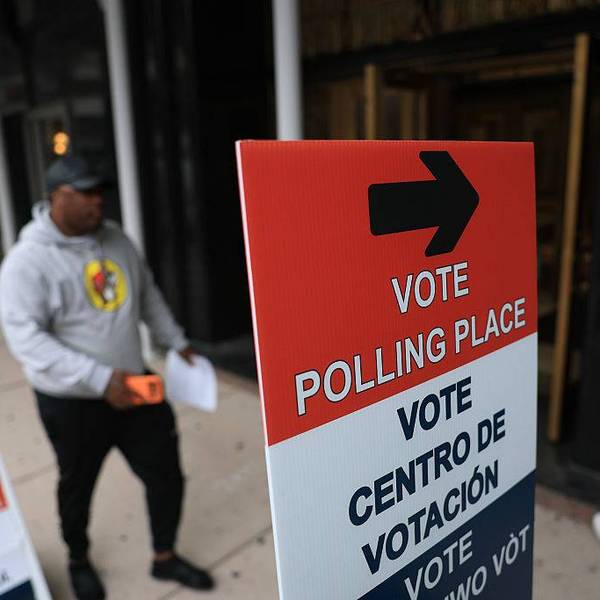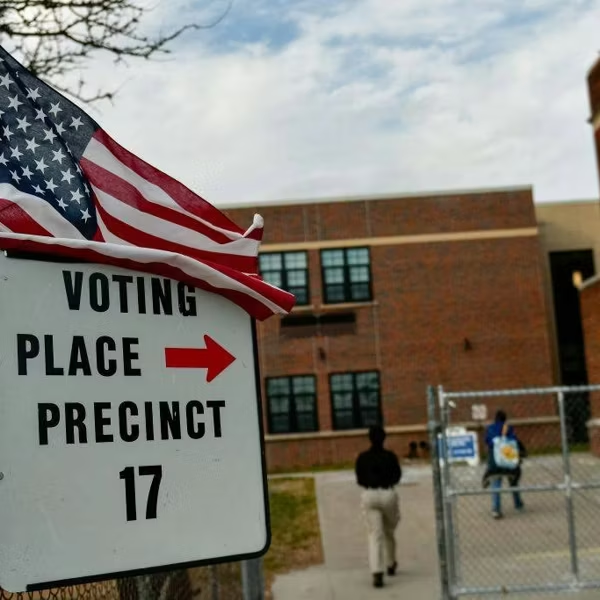Smack-dab in the middle of the Wisconsin flag is the word "Forward." It's the state motto, and has been used to brand everything from the University of Wisconsin system to standardized tests for elementary school students to a local technology festival designed to showcase the best and brightest in the field. It's the slogan of a state focused on moving in a positive direction. Though, when it comes to promoting a fair and accessible democracy, Badgers have been doing anything but.
Tomorrow's election highlights three ways the state has veered severely off course -- and showcases a broader national trend.
1.) When Wisconsinites head to the polls tomorrow they, like many Americans, will face much stricter rules than four years ago. The state is one of 17 with new voting regulations in place for the first time in a presidential election this year, according to the latest Brennan Center analysis, updated today. Its strict photo ID law, for example, went into effect in 2015 following a series of court challenges (which are still ongoing). U.S. District Court Judge Lynn Adelman found 300,000 registered voters lack the required ID. The legislature also significantly cut back early voting, reducing early voting hours on weekdays and eliminating them entirely on weekdays.
2.) Wisconsin is also the poster child for allowing secret money in elections, a growing problem at both the national and state levels. Gov. Scott Walker (R) signed laws last year allowing individuals to donate anonymously to outside groups -- and for candidate's campaigns to coordinate with those groups on certain political advertisements. "[The law] breaks sharply from Wisconsin's tradition of openness and transparency, allowing big donors to influence government without public scrutiny," argued the Brennan Center's Daniel Weiner and Brent Ferguson. That means when Wisconsinites go to the polls tomorrow, it will be harder than ever to know who is trying to influence their votes.
3.) Nowhere is the effect of weakened campaign finance rules more apparent Tuesday than in the race for a state supreme court seat. Wisconsin has a long history of high-cost, politicized judicial races, which is one reason public confidence in the courts has plummeted. This year, incumbent Justice Rebecca Bradley is facing off against state Court of Appeals Judge JoAnne Kloppenburg. Two outside groups have dominated TV spending: the Wisconsin Alliance for Reform is supporting Bradley, and the Greater Wisconsin Committee is supporting Kloppenburg. Together the groups have spent more than $1.8 million, and neither has to disclose their donors.
Perhaps the most glaring example of the harms that can come from politicization of judicial races is the Wisconsin Supreme Court's 4-2 decision last year to end an investigation into Scott Walker. The "John Doe" probe examined whether independent groups had illegally coordinated with Walker's recall campaign in 2012. Each justice who supported ending the investigation ran campaigns that had benefited from the same groups under investigation for the coordination. (Current candidate and Supreme Court Justice Rebecca Bradley was not on the court at the time.) The "extraordinary" ruling raised "grave concerns about the fairness and impartiality of the court" in Wisconsin, Matt Menendez said.
The Badger State's troubled history raises a lot of questions heading into the primary election tomorrow. Will legitimate voters be turned away at the polls? Will voters have a full picture of who's influencing the candidates they vote for? And, will this state that's highlighting issues in American politics and democracy take steps to truly abide by the motto it clearly reveres?



